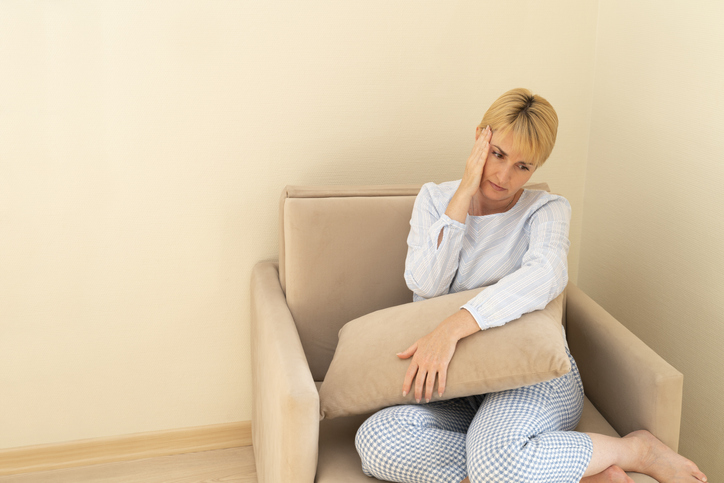Postmenopause – What Can You Expect?
All women are different, and so the postmenopause experience will vary, but it helps to be prepared.

Postmenopause is the time after you’ve been without a menstrual period for 12 months and this may be a natural age related occurrence or because of a hysterectomy, surgery that removes the ovaries (oophorectomy), chemotherapy and radiation therapy or POF (primary ovarian insufficiency).
This is a time when hopefully symptoms can naturally decrease, continue or get milder but unfortunately many women do continue to suffer post menopause as although hormonal fluctuations that bring on symptoms like hot flushes decrease, stress and anxiety levels can rise and this starts the process up again.
When does it happen?
There is not an age at which that you are automatically in postmenopause due to factors such as hysterectomy or chemo/radiation therapy but it is a term to describe the time after you have gone through menopause and have not had a menstrual period for longer than 12 consecutive months.
Now your reproductive years are behind you and you’re no longer ovulating – so won’t get pregnant – but some women continue to experience menopausal symptoms for a decade or longer after menopause.
Once this happens, you’re in postmenopause for the rest of your life and as your ovaries are making very little of both oestrogen and progesterone by the time you’re in postmenopause it doesn’t guarantee you will be symptom free.
What symptoms could you experience?
Most women can still feel lingering symptoms although they are generally less intense and some women experience none at all.
These are the most common symptoms:
! Anxiety and depression
! Dryness of the face and body
! Hair loss
! Hot flushes and night sweats**
! Libido changes
! Sleep issues
! Urinary issues
! Vaginal dryness and sexual discomfort***
! Vaginal atrophy
! Weight changes
** Some women do still experience hot flushes after menopause but they are often related to stress and anxiety rather than hormone fluctuations.
*** Vaginal bleeding during postmenopause isn’t a normal side effect of decreasing hormone levels. In some cases, the dryness in your vagina could cause some light bleeding or spotting after sex. However, it could indicate a condition like endometrial hyperplasia or uterine fibroids, infections like endometritis, or cancer.
What can help?
As there are increased health risks post menopause for osteoporosis, heart disease and strokes your doctor may suggest HRT but you are less likely to be offered it and then only for short term use.
By the age of 60 the arteries are generally stiffer and so you are more at risk of cardiovascular disease and high blood pressure would increase this risk as well.
Osteoporosis is also a major concern as you lose up to 25% of your bone density after menopause. When too much bone is lost, it increases your risk of developing osteoporosis and bone fractures and this needs to be helped if you have any family history of the condition.
Bioidentical hormones have been in use worldwide for over 25 years and you may find progesterone and oestrogen helpful, depending on your symptoms, or a combination of the two with additional ingredients such as herbs and vitamin D.
There are also certain lifestyle changes can help you manage symptoms of postmenopause – and you will be familiar with most of them as they are lifetime habits that make a difference to general overall health.
! Have checks for high cholesterol, high blood pressure and weight
! Healthy diets mean having phytoestrogens, fibre, enough protein, fruit & vegetables, fluids
! Meditation and other relaxing activities can help with anxiety and depression
! Reducing caffeine and alcohol intake has also been shown to help as they can raise anxiety
! Regular exercise , has many benefits, both physical and mental so find something you enjoy
! Stop smoking
Helpful information:
We all want our postmenopause years to be as healthy as possible so reducing stress and anxiety will be a good start as they are behind many of the symptoms women experience at this time.
Check whether you need to supplement with progesterone for osteoporosis and sleep issues or progesterone and oestrogen for hot flushes and vaginal dryness.
If you are looking for a balanced hormone profile with additional help for post menopause then you will find more information on Lifelong Hormone Care here.
If you are finding keeping your weight down is a problem, then this article can help.
What You Need To Help With Weight Loss


















